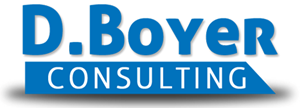Business is mostly conducted via email or phone communications.
Office hours 10:00 a.m. to 6:00 p.m, Mon. - Thurs., and 10:00 a.m. to 2:00 p.m. on Fridays.
SEND EMAIL INQUIRIES DIRECTLY TO:
Dawn.Boyer@me.com
Business is mostly conducted via email or phone communications.
Office hours 10:00 a.m. to 6:00 p.m, Mon. - Thurs., and 10:00 a.m. to 2:00 p.m. on Fridays.
SEND EMAIL INQUIRIES DIRECTLY TO:
Dawn.Boyer@me.com
Business is mostly conducted via email or phone communications.
Office hours 10:00 a.m. to 6:00 p.m, Mon. - Thurs., and 10:00 a.m. to 2:00 p.m. on Fridays.
SEND EMAIL INQUIRIES DIRECTLY TO:
Dawn.Boyer@me.com
So you want to be a Human Resources professional?
May 25th, 2012 by Dawn Boyer
So you want to be a Human Resources professional?
Human Resources Management (HRM) is one of the hardest business arenas into which to get established, especially at a management level. So many (predominantly female) have to work their way up through the ranks, including paying dues as a ‘grunge level staff member’ (e.g., HR clerical assistant). I had to start as a entry-level generalist, even though I had a Master’s Degree in Adult Education with a focus on Training and Development in Human Resources.
If you are in a military retirement town (like I am, near Norfolk), you are also in competition with many military retirees with degrees in HR (but unfortunately are not really versed or practiced in the commercial world of HR). In the military, those in HR functions perform mostly administrative work. In the corporate-world, HRMs have oversight of benefits, compensation plans, legal compliance, training and development, annual evaluations, communications, and payroll. In the military, the federal government deals with many of these oversight functions versus the military veteran HRM. (This is not to downgrade HRM service members, especially those who have degrees; there is a huge amount of compliance in the private, commercial industry to which they haven’t been exposed as a government employee.)
Yes – there are limited opportunities, as I noted above for the competition. You could have an ‘in’ for getting an HR position a little higher than a clerical job. If you have background and skills in accounting, payroll, recruiting, or training, those should open many doors in companies which need an HR person who also monitors, regulates, and has financial decision-making responsibility in those functions. Another niche would be Social Media, with the capability of unique sourcing skills, which would qualify you for HR-related public relations (company branding as employer of choice) or recruiting and headhunting. Work yourself into a job with those niche qualities and experience, then aim towards parallel or higher positions as a HRM with more mainline tasks in the HR realm.
Ideas to provide ‘ foot-in-the-door’ experience to add another resume bullet:
A 1970 research study by Mark Granovetter demonstrated it’s not your close personal contacts who can network you a job (16.7%), it’s primarily through ‘barely know them acquaintances.’ The economy still is ‘down’ for many job searches and the human resources fields are often affected a little harder because some companies feel an HR person is one of the non-revenue positions they can spare. Use these ideas to open doors (and windows) to that Human Resources (or other!) position you are working to break into the field.
Dawn Boyer can be reached at Dawn.Boyer@me.com and is the owner of D. Boyer Consulting. We “Optimize Human Assets, SEO Resumes, and Link-You to LinkedIn,” (https://dboyerconsulting.com); providing human resources and business development consulting for small businesses, resume coaching, and train users on LinkedIn social media. Copyright 2012 by Dawn D. Boyer.
Readers Comments
So you want to be a Human Resources professional?
May 25th, 2012 by Dawn Boyer
So you want to be a Human Resources professional?
Human Resources Management (HRM) is one of the hardest business arenas into which to get established, especially at a management level. So many (predominantly female) have to work their way up through the ranks, including paying dues as a ‘grunge level staff member’ (e.g., HR clerical assistant). I had to start as a entry-level generalist, even though I had a Master’s Degree in Adult Education with a focus on Training and Development in Human Resources.
If you are in a military retirement town (like I am, near Norfolk), you are also in competition with many military retirees with degrees in HR (but unfortunately are not really versed or practiced in the commercial world of HR). In the military, those in HR functions perform mostly administrative work. In the corporate-world, HRMs have oversight of benefits, compensation plans, legal compliance, training and development, annual evaluations, communications, and payroll. In the military, the federal government deals with many of these oversight functions versus the military veteran HRM. (This is not to downgrade HRM service members, especially those who have degrees; there is a huge amount of compliance in the private, commercial industry to which they haven’t been exposed as a government employee.)
Yes – there are limited opportunities, as I noted above for the competition. You could have an ‘in’ for getting an HR position a little higher than a clerical job. If you have background and skills in accounting, payroll, recruiting, or training, those should open many doors in companies which need an HR person who also monitors, regulates, and has financial decision-making responsibility in those functions. Another niche would be Social Media, with the capability of unique sourcing skills, which would qualify you for HR-related public relations (company branding as employer of choice) or recruiting and headhunting. Work yourself into a job with those niche qualities and experience, then aim towards parallel or higher positions as a HRM with more mainline tasks in the HR realm.
Ideas to provide ‘ foot-in-the-door’ experience to add another resume bullet:
A 1970 research study by Mark Granovetter demonstrated it’s not your close personal contacts who can network you a job (16.7%), it’s primarily through ‘barely know them acquaintances.’ The economy still is ‘down’ for many job searches and the human resources fields are often affected a little harder because some companies feel an HR person is one of the non-revenue positions they can spare. Use these ideas to open doors (and windows) to that Human Resources (or other!) position you are working to break into the field.
Dawn Boyer can be reached at Dawn.Boyer@me.com and is the owner of D. Boyer Consulting. We “Optimize Human Assets, SEO Resumes, and Link-You to LinkedIn,” (https://dboyerconsulting.com); providing human resources and business development consulting for small businesses, resume coaching, and train users on LinkedIn social media. Copyright 2012 by Dawn D. Boyer.










